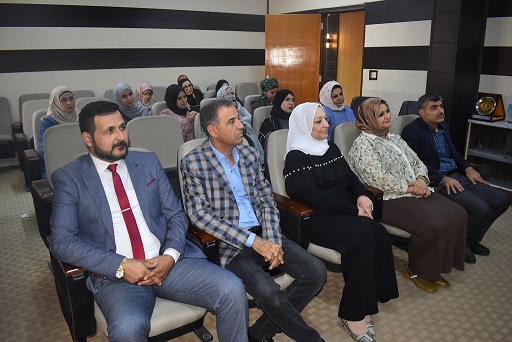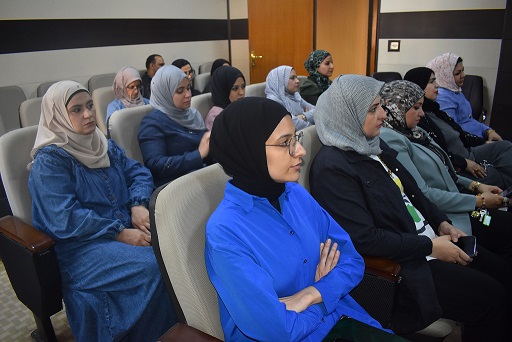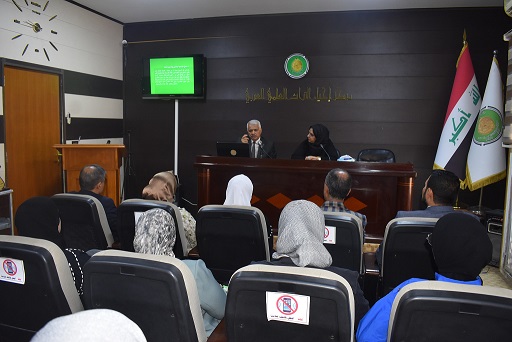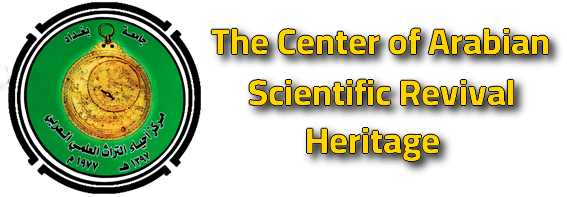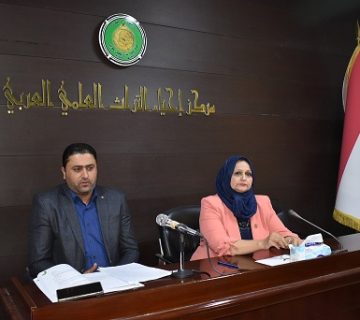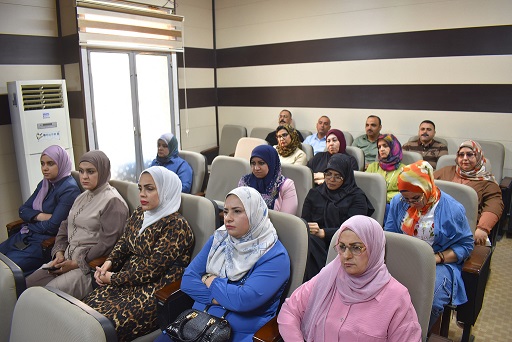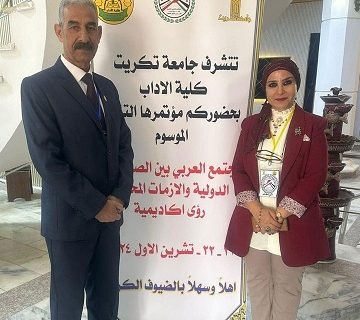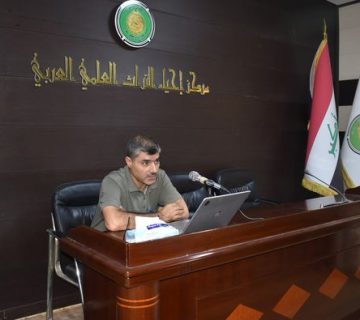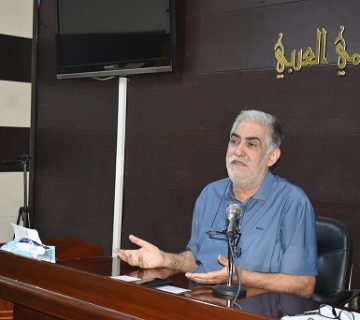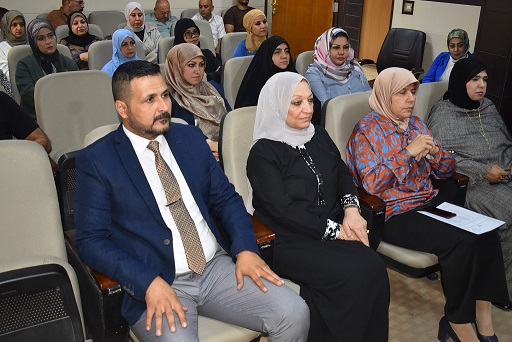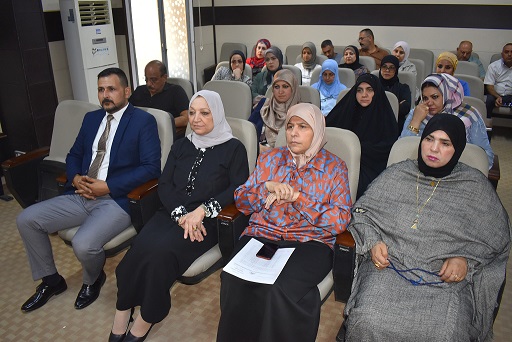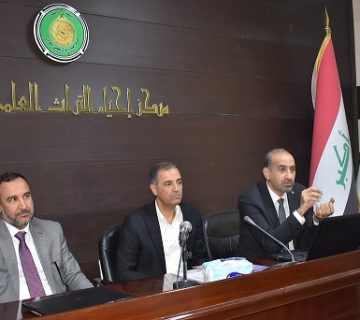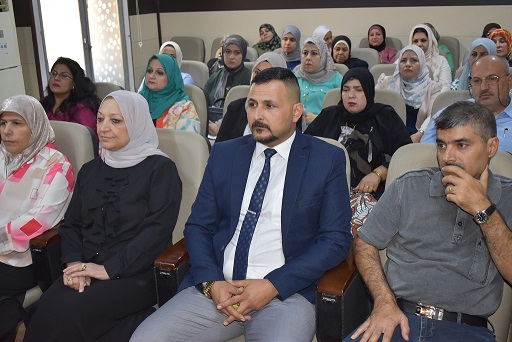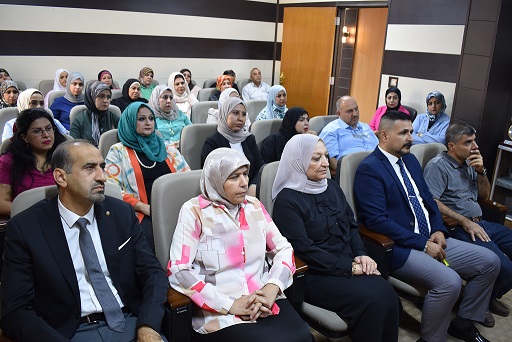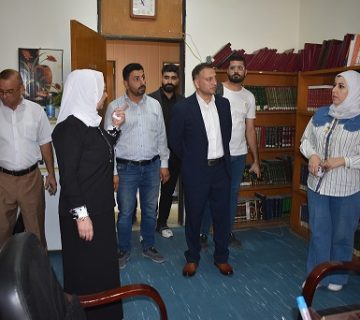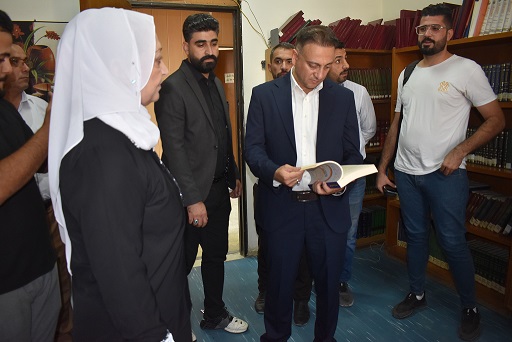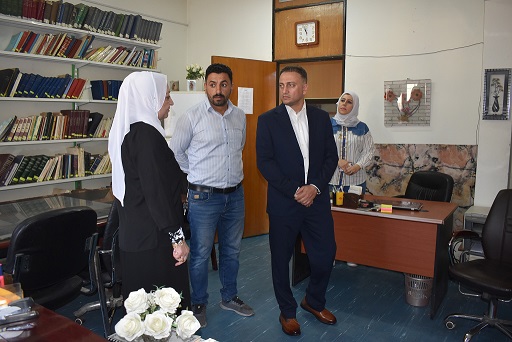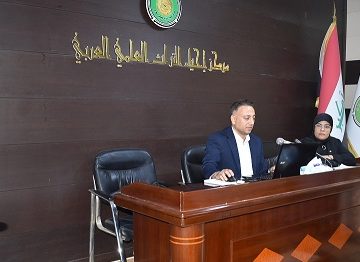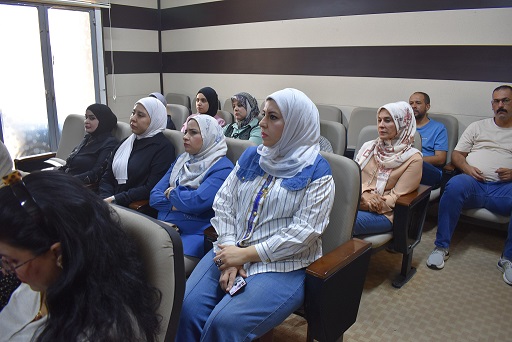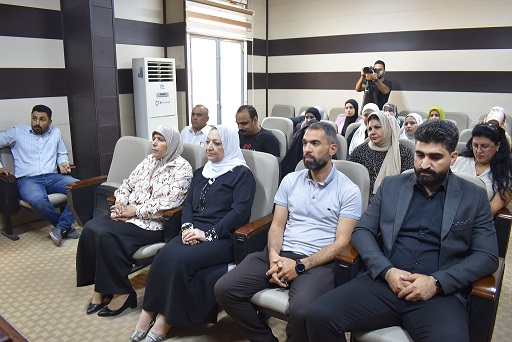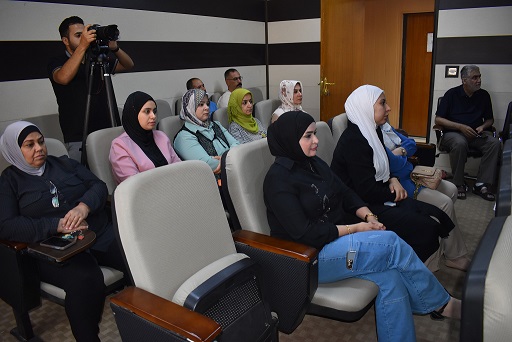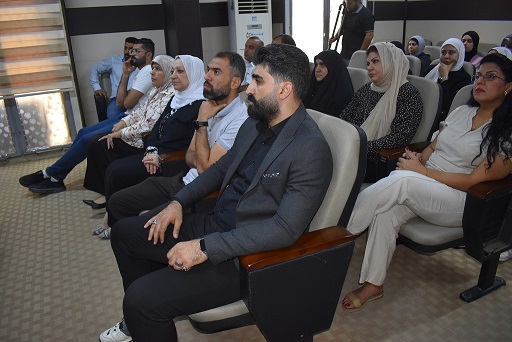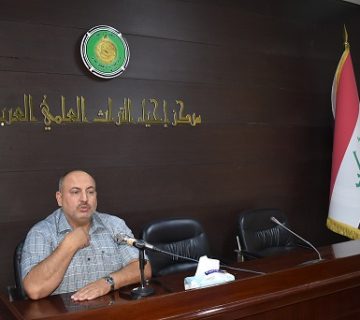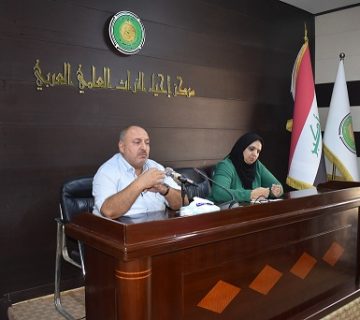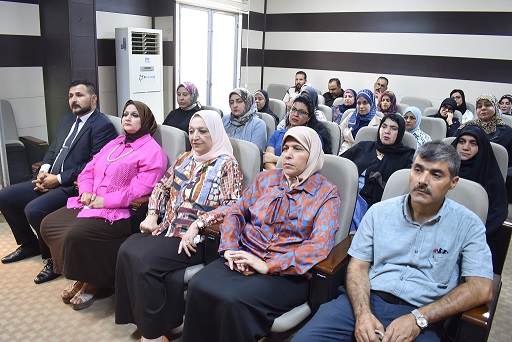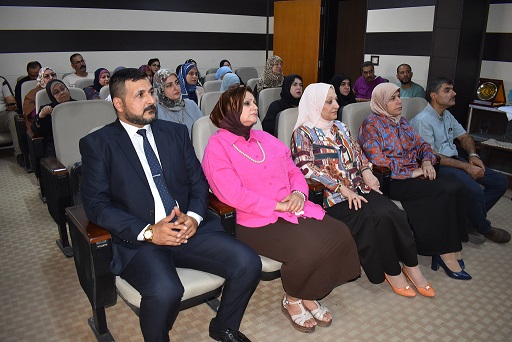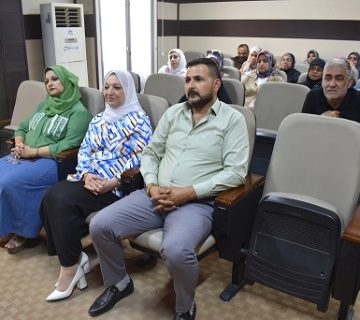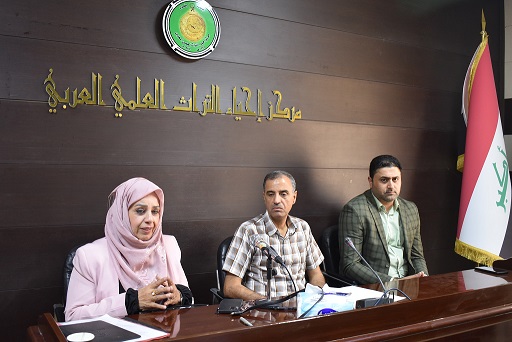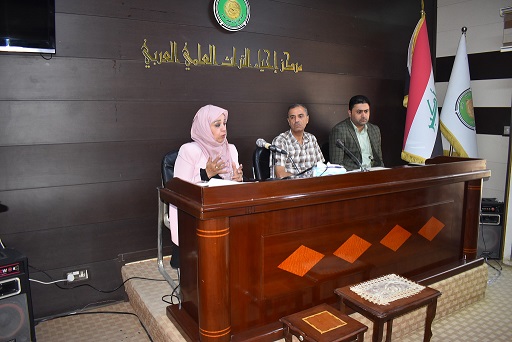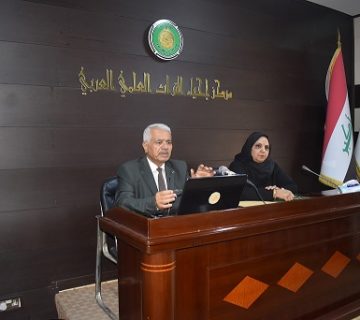
The center of heritage revival organizes workshop
Under the supervision by prof. Dr. Alaa Nafea Jasim (the director of the center , The center of heritage revival organizes workshop (the archeological heritage in In Shorjah Market, protecting authenticity and the challenges of modernity), on Monday 4th/11/2024 with presence by many professors and members of the center , the lecturer is present by prof. Dr. Saadi Ibraham Aldaraji (one of the retired professor of the center) who talked about The origin of the name “Shorjah” is that there was a bathhouse with a salty well in this market, so the bathhouse was known as (Shorjah), which is taken from the Persian language where (Shor) means salty and (Jah) means well, so it is (Shorjah). Over time, its name came to be given to its vicinity and even to a part of the Attarin Market itself, then the names overlapped and spread until the name Shorjah prevailed over the Attarin Market. The history of the name is mentioned in the records of the Turkish traveler (Evliya Çelebi) the names of some of Baghdad’s shops, among which he mentioned the Shorjah Market when he talked about the Caliphs’ Mosque. The traveler had visited Baghdad twice in the years 1648 and 1653 AD. The first endowment in which the name Shorjah was mentioned is the endowment of Hajj Muhammad bin Murad al-Baghdadi dated (1159 AH / 1746 AD). He endowed his descendants with a courtyard at the head of the Shorjah market. Al-Daraji added that the most important archaeological landmarks in Shorjah are the Marjan Mosque, a group of inns, old houses, the shrine of Ambassador Al-Nawbakhti, and the Latin Church…. In conclusion, the director of the center thanked the lecturer, wishing him continued success
